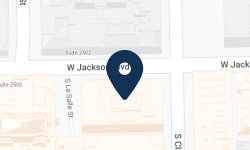Is being Too Drunk a Defense to a DUI in Illinois?
Not in Illinois. In Illinois for a person to be found guilty of DUI all the state needs to prove are the following:
1. That the defendant drove, or was in actual physical control of a vehicle; and
2. That at the time the defendant drove or was in actual physical control of a vehicle, the defendant was under the influence of alcohol. Illinois Pattern Jury Instruction Criminal 23.14
This recently became an issue in the news because lawyers for three people convicted of murder in New York claimed that they were too drunk to know what they were doing and therefore their convictions should be reversed.
Being too drunk is not a defense because the State does not have to prove the defendant guilty of “intent.” There is no intent to drive drunk like there would be in a charge of residential burglary which is a specific intent crime requiring the defendant to have the specific intent, the mental state, to commit a felony or theft. A person under the law is said to act with intent when he engages in conduct and has a conscious objective to accomplish that result. 720 Illinois Complied Statutes 5/4-4. So voluntary intoxication is a defense to a specific intent crime. DUI is not a specific intent crime.
“[(An intoxicated)([a] drugged)] person is criminally responsible for his conduct unless his [(intoxication)(drugged condition)] renders him incapable of acting [(knowingly)(intentionally)] Illinois Pattern Jury Instruction Criminal 24-25.02.
If the evidence in a case is sufficient to raise voluntary intoxication as an affirmative defense, then the State has the burden of rebutting, which means presenting evidence and proving beyond a reasonable doubt that the defendant was aware of his actions at the time he committed the crime. When a defendant uses an affirmative defense, he is admitting to the charge but is saying there is a defense to it. For example, self-defense is an affirmative defense to a battery or murder charge but the defendant has to first admit that he committed the battery or murder and then present evidence he was acting in self-defense.
Nevertheless, in practice, in the real world, voluntary intoxication is a defense when someone makes a mistake because they are drunk, not when they commit a crime when drunk. It would not be a defense for a drunken person to break into a liquor store to steal some more booze. However, it would be a defense if someone went into the wrong house because they were too drunk to know it was not their house and in fact thought it was their own house.















